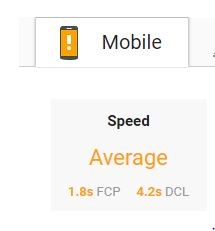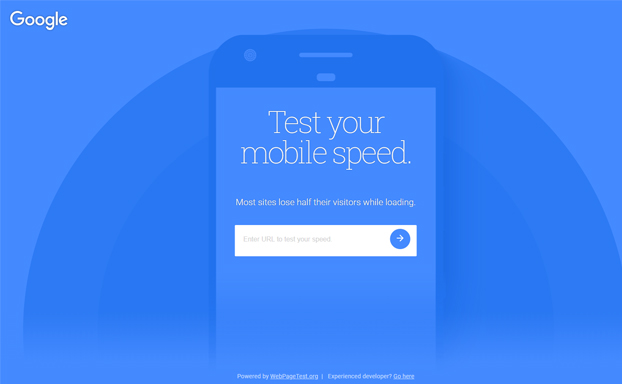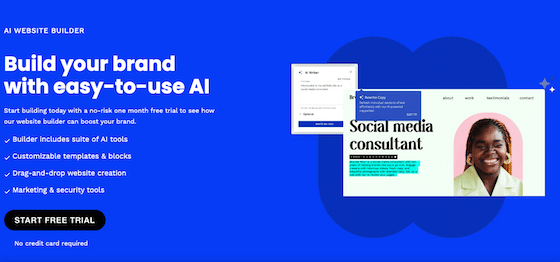Whenever Google announces a new ranking factor, it’s important for digital marketing professionals to try to determine how much this factor will change how they can best serve their clients. And, on January 17, 2018, Google made one of those announcements, sharing that page speed will — effective in July 2018 — become a ranking factor for mobile pages.
Yes, it will be a relatively small factor that affects only the slowest pages, at least for now. But mobile page speed is likely to continue to grow in importance in Google’s algorithm, and so here are four ways this new ranking factor may affect what services you offer at your digital marketing company.
#1 Page Speed Audits
Since desktop page speed has been a ranking factor for nearly eight years, you may already be incorporating page speed audits into your service offerings. And, if you’ve been encouraging your clients to have a responsive mobile site, you may already be consulting on and assisting with page speed from that perspective.
We anticipate more of a need for page speed audits, though, so it’s time to look at your service offerings and button up any gaps caused by Google’s Speed Update. For clients with more popular sites, you can use PageSpeed Insights to glean information about mobile page speed along with receiving customized performance optimization suggestions and fixes. Sites are ranked, overall, as fast, average or slow.
As one example, PageSpeed Insights allows us to see that Walmart.com has only average page speed for mobile, with ratings of 1.8s with FCP and 4.2s with DCL.

The first metric (FCP) measures how quickly site visitors see visual responses at Walmart.com, with faster times making site visitor engagement more likely. The second metric (DCL) measures how quickly HTML loads and parses; the faster, the better, as far as bounce rate goes.
Here is a bar graph to further illustrate Walmart.com’s page speeds:

As you can see, they are doing better with FCP than with DCL, but it’s likely that Google is using the second metric in its calculations.
If your clients’ sites aren’t trafficked well enough to get page speed information from PageSpeed Insights (and the bar for that is still fairly high), here are other options:
- Run a synthetic performance audit through Lighthouse
- Find numerous other open source tools at ModPageSpeed.com
- Test site speed at TestMySite to see how quickly a site loads with a 3G connection
- Find more page speed tests at GTMetrix.com
#2 Page Speed Competitive Reviews
Few sites will have blazing fast speed with no areas to improve upon, so that isn’t necessarily the goal. What does matter: how well your clients’ competitors are doing in comparison. Fortunately, you can use many of the same tools described above to determine how well a client’s competitor is doing and use that as the basis of competitive intelligence products.
#3 Speed-Focused Web Dev Services
When Panda and Penguin news was hot off the press, smart digital marketing companies began investing more in quality content creation. And, while that is still very important in 2018, you’ll likely find that even clients with decent in-house IT departments will be lacking in crucial know-how about page speed optimization tactics.
For example, one now-proven way to boost site speed significantly involves using Accelerated Mobile Page (AMP) technology. There are numerous pros and cons about AMP technology, with a main plus being the lightning-fast speed of page loading, and one of the biggest drawbacks being the technical requirements of AMP, including but not limited to these types of challenges:
- Page validation
- Lead page form generation
- Tracking code issues
- Schema specifics
The reality is that many otherwise technically-proficient IT experts don’t understand the ins and outs of AMP and the page speed issue, overall, which means the IT team that has been serving everyone well to date may not fully understand what you need to accomplish now. Your clients will likely now need image optimization and code compression services, as well as help in optimizing cache and improving server response times. One way to do the latter: using a CDN (Content Delivery Network or Content Distribution Network), a highly-optimized server you can manage to help ensure that people who visit your clients’ sites will be able to use the closest servers for maximum speed performance.
How will your agency solve the need for expanded technical expertise? Will you partner with IT professionals who are Google-savvy and outsource part of your client work to them? Hire an in-house team? There are multiple ways to go about it, but it’s likely to be important in 2018 and beyond to have a page-speed-savvy IT team close at hand so you can keep up with your own competitors.
#4 Client Education
To help clients obtain the page speed they need to compete will come with added costs, and clients will likely want you to explain why page speed matters more now than ever before with mobile. Yes, you can point out that Google has announced this as a ranking factor, but they’ll be more likely to understand why they need to invest in page-speed services with your agency if you can share statistics that show how site visitors are becoming increasingly more impatient with slow page loads and how this impatience can cause them to abandon your clients’ sites and head to competitors’ sites that load more quickly. You can find some statistics here and then mine data from your clients’ analytics to show red flags.
Plus, you can share with your clients how bounce rates can serve as double-whammies. You first lose the impatient site visitors and then you’re hit with another problem: because poor engagement metrics can impact site rankings, slower sites may well become even less visible online.
We believe that a quality user experience is crucial, and that’s the main reason we recommend that agencies keep page speed considerations front of mind, both now and in the future. Even if the addition of a mobile page speed factor into Google’s ranking algorithm doesn’t directly affect a site, that’s a moot point if people are leaving the site in droves in frustration over the lack of speed.




